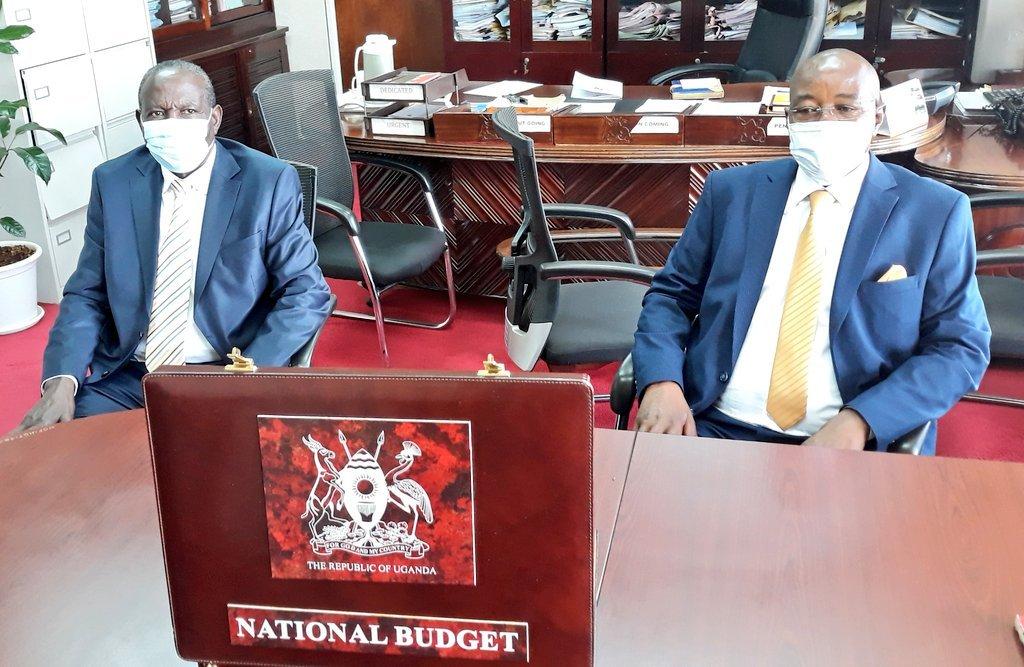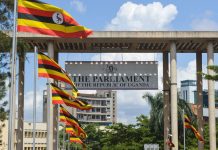Africa-Press – Uganda. The budget is a series of processes. Beyond the Budget Speech, are other processes that anyone should follow. Those processes not only help to understand the Budget but let you in on where the money is and how you can take advantage of it.
Government is the biggest spender. At least in most parts of sub Saharan Africa. It derives this power from the budget that it appropriates annually, drawing resources from within and without in terms of taxes, grants and donor funding. Therefore, it is for this reason that the private sector across the divide must put attention to where the money is and what opportunities come with it. The budget document is usually a voluminous document. But that should never scare you because the devil is usually in the details.
In any case, nothing that is valuable comes easily, which also applies to opportunities. Manufacturing remains a key centre of economic development, supporting both government and the private sector. Therefore, manufacturing is one of the biggest suppliers, especially to government. However, it goes without saying that government is also a bad debtor. In the previous financial year, more than Shs400b remained unpaid with arrears continuing to stand out as one of the largest hindrances to private sector growth and development. Growing arrears not only stifle growth of the larger economy but also curtail private sector’s ability to expand and enhance operations.
As a result, many private sector businesses have gone out of business, worsened by Covid-19 yet if they are cleared, they would do a difference. Muzamil Mabirah, the Uganda Manufacturers Association (UMA), manager policy, says manufacturing under the National Development Plan (NDP) has a lot of opportunities guided by a development agenda that seeks to achieve both short and long term goals.
“Manufacturing is pivotal when it comes to the taxes and budget allocations,” he says but, notes that sometime money channeled or diverted to other commitments, which actually, is one of the factors that lead to accumulation of arrears. For instance, in many instances, government ministries, agencies and departments have made procurements, which are budgeted for but are never paid or take years without being paid. In other cases, money allocated to paying arrears is diverted to other things. However, Mabirah argues there is a ray hope building on the e-procurement system, which he says, should be used to lock in any money to a particular supplier that had delivered a product.
The budget has over the years grown exponentially from Shs26.2 trillion in the 2016/17 financial year to Shs44.7trillion in the 2021/22 financial year, which represents a growth of more than 70 per cent. This is attributed to an increase in gross domestic product from Shs108.5 trillion in the 2016/17 financial year to Shs150.2 trillion as projected by the end of 2021/22 financial year. The budget is a combination of different documents and processes, among which include the budget framework paper and ministerial policy statements, which are creations of the Constitution and the Public Finance Management Act.
According to Rama Omonya, a lawyer and policy analyst, before the budget framework paper comes out in September or October, the Ministry of Finance conducts a macro-economic analysis, which informs the making of the background to the budget that is discussed in the pre-budget conference, usually in August.“Business people should be interested in macro-economic analysis and the pre-budget conference,” he says, noting the priorities for the next financial year largely come from this process.
Before the budget framework paper, the Ministry of Finance issues to all government accounting officers the budget call circular, which sets the agenda and guidance on how to prepare framework papers for different votes. The budget call circular contains the indicative planning figures, which provides limits within which a vote must plan. “Businesses can use this information to predict the kind of dealings that will come from government,” Omonya says, noting that even if there are changes before the final budget, it is a good pointer that businesses should use to understand what is coming.
What to look out for
When the first budget call circular is issued, accounting officers then prepare framework papers that are usually preceded by consultations. The Ministry of Finance has lately adopted a new measure through which it organises regional consultation meetings in major towns and cities that are used to generate budgeting priorities, particularly for votes. Omonya argues that most people wait for the budget speech yet they should be participating in such consultations through which they can push for business inclusions or even reversals.
Take interest in such consultations. It can be as individuals or groups representing traders, manufacturers and transporters among others,” he says, noting this way, the weight of the issues you are advocating for will be more felt. It is from here, he says, that ideas and views can be submitted in any form to let accounting officers in on what they should be budgeting for. Uganda runs a relatively transparent budget process and has been ranked second behind South Africa in budget transparency in sub Saharan Africa.Ramathan Ggoobi, an economist and lecturer at Makerere University Business School, says it is always important to follow budget strategy or priorities that inform final allocations.
“If government is focusing on achieving agro-industrialisation, for example, it will align the investment strategy on that. Position your business in line with government priorities and you will get part of the money,” he says. Sectors that must be followed with keen interest, Ggoobi says, are those that are provided with money to subsidise certain segments of the sub-economy with the view of supporting production or reducing the prices of the goods. Other sectors that businesses should analyse, he adds, are those that have received tax increases because some of them turn out to be “lucrative, which is why government would want to tax them more”.
But more closely, according Lydia Tumusiime, the UMA communication officer, businesses must not just wake up and seek opportunities because they have heard something. There is need, she says, to look out for what has been proposed to see if it fits within your expectations. “Opportunities can be identified or got with the right proposals that speak to your particular sector. This is where a collective representation comes in to help through associations,” Tumusiime says, noting that if the proposed budget fails to meet your expectations then engage a representative association to address this.Many businesses have umbrella associations under which they belong and can lobby as a group.
However, she says, as entrepreneurs and the businesses at an individual level, you need to take time out to understand elements in the budget that are likely to affect you or your business. This, she says, makes you appreciate the importance of collective representation, especially when it comes to budget submissions and proposals because the budget cycle is usually limited and government cannot address every proposal independently.
Beyond this, Doreen Mugisha from PriceWater Coopers (PWC), says business people should look at trends and macro and micro data because they make a better understanding of the budget. “By looking at the proposed future government spending, tax changes in form of incentives, reductions or increase in tax rates, tax administrative and enforcement measures, you get a better indication where government’s focus will be,” she says.
The Budget Process The budget is prepared through an open, transparent and widely participatory process. The objective of the consultative process is to solicit the views of all stakeholders in the preparation of the Budget and consequently ensure that the national budget reflects the views, aspirations and priorities of all stakeholders.The budget process is undertaken at four key levels, among which include the Ministry of Finance, Sector Working Groups , Line Ministries and Local Governments, Cabinet and Parliament. According to the Budget Cycle, the budget process starts in September each year and has six key stages, among them
I) Setting the macro-economic framework, national priorities and sector ceilings II) Budget consultations (political and technical)III) Preparation of the budget estimatesIV) Presentation and approval of the budgetV) Budget implementationIV) Budget monitoring and evaluation






